Choosing the Right Translation Services in 2025

Summary
Choosing a translation service in 2025 is no longer just about finding someone who speaks two languages. With global communication accelerating, accuracy, cultural awareness, and industry expertise now carry real financial, legal, and reputational risk. This guide explains why the right translation partner matters more than ever, especially in fields like law, healthcare, finance, and global business. It walks through what to look for in a professional translation company—from certified translators and industry knowledge to modern tools like translation memory and human quality checks. You’ll also learn how pricing works, what affects turnaround times, and why cultural competence can make or break your message in new markets. Whether you’re translating contracts, expanding internationally, or managing multilingual content, this guide helps you make a confident, informed choice that protects your message and your goals.
1. Why Choosing the Right Translation Service Matters in 2025
Translation is no longer just about converting words from one language to another—it’s about ensuring your message is accurate, culturally relevant, and tailored to your target audience. In 2025, the stakes are even higher. With global communication at an all-time high, even the smallest mistranslation can have serious consequences, from legal disputes to damaged brand reputations.
Accuracy Can’t Be Negotiated
In sectors like law, finance, and healthcare, precision is non-negotiable. A simple error, such as switching “increase” with “decrease” in a contract, could lead to significant financial or legal consequences. Similarly, an incorrect translation in a medical guide could potentially endanger patients.
Things That Help Ensure Accuracy:
- Certified Translators: Translators with certifications like ATA or NAATI typically follow high standards and offer the reliability necessary for legal and official documents.
- Translation Memory Tools: These tools store previously translated phrases to ensure consistency throughout large or repetitive projects, maintaining accuracy.
- Human Check: Even with powerful AI and machine translation tools, human oversight is essential for understanding idioms, slang, and cultural nuances.
Industry Expertise is Crucial
Different industries have specialized language that requires knowledge beyond basic fluency. For example, a legal translator must understand terms like “void” vs. “null,” while a medical translator should know the difference between “hypoglycemia” and “hyperglycemia.”
Why Industry Know-How Matters:
- Legal Risk: Incorrectly translated legal terms can lead to the invalidation of contracts or agreements.
- Financial Risk: Errors in financial translations, such as incorrect figures or financial terms, could lead to audits, misstatements, or non-compliance.
- Health Risk: Misleading or inaccurate translations of medical content, such as drug labels or treatment guidelines, could jeopardize patient safety.
- Technical Risk: Incorrect translations in product specifications or manuals can result in faulty products or misuse.
The Growing Need for Multilingual Capabilities
In 2025, businesses and individuals must cater to a diverse range of languages, including Mandarin, Arabic, Hindi, and less common languages like Vietnamese or Swahili. Translation companies that offer multilingual services and can produce accurate translations in a variety of languages provide a significant competitive advantage.
2. What to Check About a Translation Company
When selecting a translation service, it’s essential to ensure the company can meet your specific needs. Here’s a checklist of key factors to evaluate when choosing the right translation partner:
1. Right Language Pair Expertise
Not all language pairs are the same. A translation company should have in-depth knowledge of the nuances of both the source and target languages. For example, translating English to German follows different stylistic rules than English to Japanese or English to Arabic. Additionally, legal documents for civil-law countries like France are translated differently than those for common-law countries like the U.S.
Look For:
- A translation provider that has experience with your specific language pair and understands the subtleties of both languages and cultures.
2. Technology That Improves Speed and Quality
Modern translation companies leverage technology to improve efficiency and accuracy. Tools like Translation Memory (TM) and Machine Translation Post-Editing (MTPE) help reduce costs and speed up the translation process without sacrificing quality.
Tech Tools Used by Leading Translation Providers:
- Translation Memory (TM): This tool saves previously translated phrases, helping maintain consistency across large projects or ongoing work.
- Machine Translation Post-Editing (MTPE): AI tools create a draft translation that human editors refine, making the process faster while maintaining accuracy.
- Quality Assurance Software: This software checks for consistency in numbers, formatting, and terminology, ensuring the final translation is flawless.
3. Strong Client Support
Customer service is one of the key differentiators between a good and great translation service. You should be able to communicate easily with the company and receive updates on your project’s progress.
What to Look For in Customer Support:
- A Single Project Manager: A dedicated project manager ensures clear communication and consistency throughout the project.
- Multiple Communication Channels: Check if the company offers several ways to contact them, such as email, phone, or live chat, for quick response times.
- Visible Workflow: A dashboard or platform that lets you track the project from start to finish gives you transparency and peace of mind.
3. Pricing and Delivery Speed: What to Expect
Pricing and turnaround times are critical factors when selecting a translation service. While you don’t want to sacrifice quality for cost, it’s important to find a balance that works for your budget and timeline.
1. How Pricing is Determined
Translation services usually charge by word count, but the difficulty of the text, urgency, and rarity of the language pair can all affect the price. Keep in mind that the cheapest quote isn’t always the best deal.
Factors That Affect Translation Costs:
- Word Count: Longer documents may come with a discount per word.
- Document Complexity: Legal or medical documents may require higher fees due to the expertise needed.
- Urgency: Expedited services usually come at a premium.
- Rare Language Pairs: Less common languages may cost more due to limited translator availability.
Always request a detailed quote that breaks down the pricing structure, so you can compare quotes accurately.
2. Turnaround Times
The speed of delivery depends on the length of the document, its complexity, and the service you require. Translation companies typically offer various levels of service, including standard, expedited, and batch processing.
Types of Service Delivery:
- Standard Turnaround: This allows time for quality assurance and thorough proofreading, providing the most accurate results.
- Expedited Service: This is faster but comes at a higher cost.
- Batch Processing: This service is ideal for large-scale translation projects, like website localization, as it can handle multiple files at once.
Choosing a company that can meet deadlines without compromising on quality is essential for any business or legal project.
4. Why Cultural Competence is Key in Translation
A translation service provider isn’t just about word-for-word conversion; it’s about ensuring the translated content is culturally appropriate and resonates with the target audience.
1. Adapt Content for Local Audiences
Direct translations often miss the cultural context. To ensure your message works, it’s essential to adapt it for local sensibilities. For instance, translating a slogan like “Feel the Freedom” into Mandarin might be technically correct but fail to capture the same sense of optimism. A better version could align more closely with local expressions and values.
2. Avoid Cultural Blunders
Cultural mistakes in translation can seriously damage a brand. For example, a beverage company accidentally used a phrase in Arabic that was linked to a taboo, causing an uproar. Instructions or warnings that ignore local norms or safety standards can lead to accidents or lawsuits.
How to Ensure Cultural Accuracy:
- Hire Native Speakers: Native translators inherently understand cultural nuances and can avoid potential mistakes.
- Choose Translators with Cultural Backgrounds: Translators who have lived in the target market will spot potential issues early and help adjust content to ensure it’s culturally appropriate.
Conclusion
Choosing the right translation services means looking beyond just language fluency—it involves accuracy, industry-specific expertise, the use of modern tech tools, clear pricing, fast delivery, and cultural competence. While translation may seem straightforward, there are many moving parts to consider to ensure the translation is not only accurate but also culturally appropriate and effective.
By carefully evaluating a translation partner based on these key factors, you can ensure that your translations meet the highest standards, whether for business documents, legal contracts, or marketing materials. The right translation partner can help you navigate the global landscape, break language barriers, and reach new audiences with confidence.
Daniel Brooks is a New York City-based writer and content strategist with a deep curiosity for how language shapes connection across cultures. With over ten years of experience crafting digital content for global audiences, Daniel brings a thoughtful and practical voice to the Connected Translations blog.


